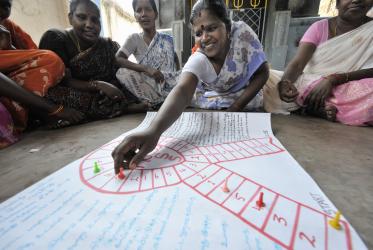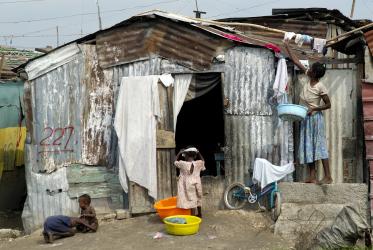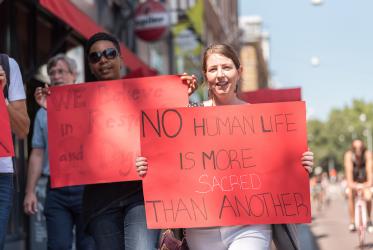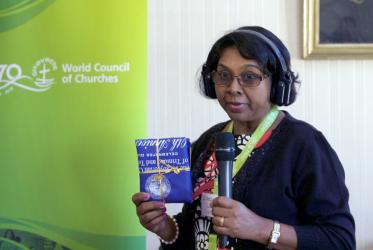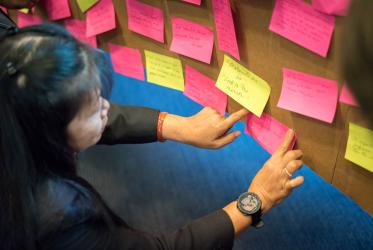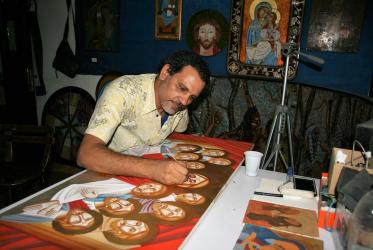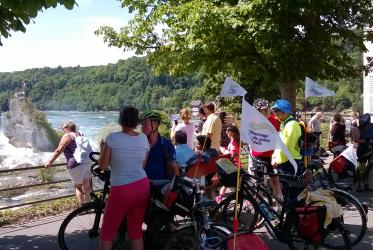Displaying 1 - 20 of 36
Churches should use their voice on climate change
26 February 2020
WCC expresses sadness, solidarity after Notre Dame fire
16 April 2019
WCC executive committee tackles public issues
07 November 2018
WCC supports UN petition from French Polynesia
07 November 2018
WCC greets new leadership of ACT Alliance
31 October 2018
Trinidad and Tobago church challenges plastic pollution
09 October 2018
What difference does dressing in black make?
02 August 2018
Working toward an AIDS-free generation
26 July 2018
WCC mourns passing of Calle Almedal
11 June 2018
Seven weeks of Lent highlight water justice in Latin America
12 February 2018
Churches in France encourage ecological conversion
24 January 2018
A cycling pilgrimage of justice and peace
07 August 2017
G7 must address famine
22 May 2017
